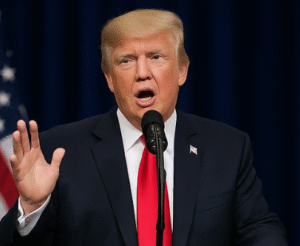$BTC $ETH #CryptoTax #UAE #Blockchain #Investing #Regulation #TaxReporting #CryptoAssets #Finance #InvestmentStrategy #DigitalAssets #WealthManagement
What Does UAE’s 2027 Crypto Tax System Mean for Your Investments?
In a significant development in the world of digital finance, the United Arab Emirates (UAE) news has revealed plans to introduce an automatic crypto tax reporting system by 2027. This initiative follows the UAE’s signing of the Multilateral Competent Authority Agreement on the Crypto-Asset Reporting Framework (CARF). As a result, exchanges and custodians based in the UAE will be obliged to collect and report customer data to their respective home country tax authorities starting in 2028.
This proactive approach to regulation indicates the UAE’s commitment to fostering a transparent and compliant cryptocurrency ecosystem. Investors should understand the implications of this system, as it will undoubtedly affect their strategies and obligations. The automatic reporting mechanism aims to streamline tax compliance for crypto investors, potentially reducing the administrative burden they face.
Understanding the Implications for Investors
The introduction of an automatic crypto tax reporting system could have several implications for investors in the UAE and beyond. First and foremost, this development may deter tax evasion and encourage compliance among cryptocurrency holders. As exchanges will be required to report user transaction data, individuals may find themselves more accountable for their crypto activities.
Moreover, this regulation could influence investor sentiment. As the crypto landscape matures, individuals may feel more secure investing in a regulated environment. This sense of security could attract institutional investors, further legitimizing the cryptocurrency market and potentially driving prices higher.
Navigating Your Investment Strategy in a Regulated Environment
With the imminent rollout of the crypto tax reporting system, investors need to reassess their strategies. Here are some key considerations:
1. Tax Compliance Awareness: Investors must familiarize themselves with tax obligations in their respective jurisdictions. Understanding how crypto gains are taxed and ensuring compliance will be crucial in avoiding penalties.
2. Record-Keeping: With the requirement for exchanges to report transaction data, investors should maintain meticulous records of their trades, wallets, and holdings. Accurate documentation will simplify tax reporting and compliance.
3. Investment Diversification: As regulations tighten, diversifying investments could mitigate risks. Exploring a mix of assets, including traditional and digital investments, may provide a balanced portfolio.
4. Market Trends: Keep an eye on market trends and how regulatory changes impact investor behavior. Being proactive and adapting to shifting dynamics can offer a competitive advantage.
The introduction of an automatic crypto tax reporting system in the UAE marks a pivotal moment for the cryptocurrency market. Investors should stay informed and proactive in the face of these changes. For more insights into cryptocurrency, consider exploring our comprehensive crypto section.
In addition, as you navigate this evolving landscape, platforms like Binance can provide tools and resources to help manage your crypto investments effectively.
In conclusion, while the UAE’s move towards a regulated crypto environment may pose challenges, it also presents opportunities for growth and legitimacy in the digital asset space. Investors who adapt to these changes with diligence and foresight can position themselves to thrive in this exciting new frontier.











Comments are closed.